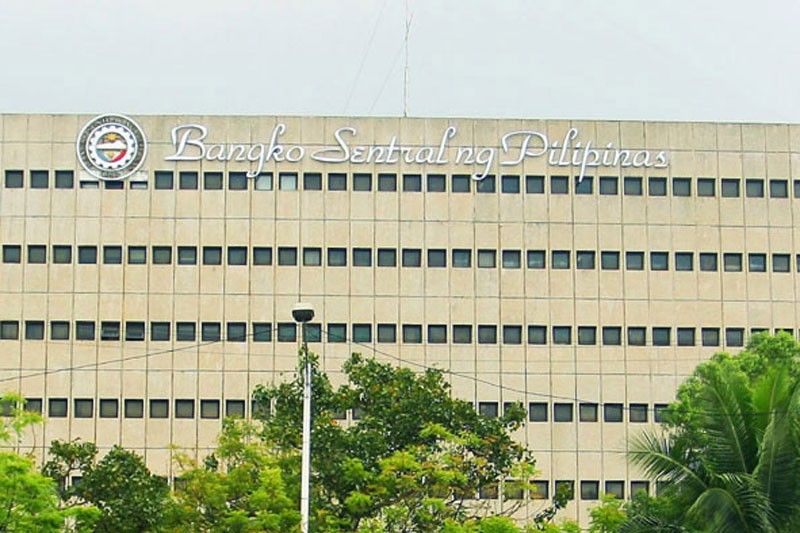BSP hikes rates by 50 bps anew

MANILA, Philippines — The Bangko Sentral ng Pilipinas delivered another aggressive monetary action with its first ever back-to-back 50-basis point (bps) rate hike yesterday amid persistent signs of sustained and broadening price pressures.
In a press conference, BSP officer-in-charge Chuchi Fonacier said the rate increase brought the overnight reverse repurchase rate to 4.5 percent, while the overnight lending and deposit facilities now stand at four and five percent, respectively.
This was the highest overnight reverse repurchase rate since 2009. The BSP, however, made an operational adjustment to the benchmark rates in 2016 as it shifted to the interest rate corridor (IRC) framework to bring market rates closer to the policy rates of the central bank.
“The Monetary Board recognized that a further tightening of monetary policy was warranted by persistent signs of sustained and broadening price pressures,” Fonacier said.
The BSP has so far raised interest rates by 100 basis points this year to rein in inflationary expectations.
It first lifted rates by 25 basis points for the first time in more than three years on May 10, followed by 25 basis points on June 20, 50 basis points – the biggest in a decade – last Aug. 9, and 50 basis points yesterday.
Fonacier said inflation expectations have remained elevated amid indications of second-round effects as supply-side forces continued to drive inflation in the coming months.
“The Monetary Board, therefore decided to raise the BSP policy interest rate anew to further anchor inflation expectations and to safeguard the inflation target over the policy horizon,” Fonacier said.
According to Fonacier, monetary authorities believed a tighter monetary policy stance would help steer inflation toward a target-consistent path over the medium term by reducing further risks to the inflation outlook, including those emanating from exchange rate volatility given the continued uncertainty in the external environment amid geopolitical tensions and the normalization of monetary policy in advanced economies.
Fonacier said the BSP emphasized the need for timely and appropriate non-monetary measures to further mitigate the impact of supply-side factors on inflation, including rice tariffication.
BSP Assistant Governor and head of the monetary policy sub-sector Francisco Dakila said the central bank now expects inflation to overshoot its two to four percent target until next year.
Based on its latest assessment, Dakila said the Monetary Board now sees inflation averaging 5.2 percent instead of the original target of 4.9 percent this year and 4.3 instead of 3.7 percent next year. For 2020, the forecast was retained at 3.2 percent.
The adjustments, Dakila explained, was brought about by the higher than expected inflation outturn in August as well as higher prices of oil, rice, and other agricultural commodities due Typhoon Ompong.
He said the proposed amendments to Republic Act 8178 otherwise known as the Agricultural Tariffication Act of 1996 could reduce inflation by 0.7 percent and help bring inflation back to the two to four percent target next year if passed this year.
Dakila said the BSP still expects inflation to peak within the third quarter before easing starting the fourth quarter of the year.
Since the beginning of the tightening episode in May, Dakila said the previous 100-basis point hike has translated to an 84.2 percent increase in lending rates and 11 basis points rise in the 91-day treasury bill rate.
BSP Deputy Governor Maria Almasara Cyd Tuaño-Amador said the next policy actions of the Monetary Board would remain data dependent.
“So the Monetary Board will look at incoming data and react accordingly. Rest assured that he primary mandate of safeguarding price stability will be the main focus of the Monetary Board,” Tuaño-Amador said.
She added the objective of the tightening is to stabilize the macroeconomic environment. “The reason for that is really to have a predictable macroeconomic environment so that you are able to make very informed business decisions as well,” she said.
Although inflation is expected to slowdown in the fourth quarter, ING Bank Manila senior economist Joey Cuyegkeng said there could be another round of rate hikes as inflation expectation remains elevated going into 2019.
“Thus it will be imperative for non-monetary policy measures to help alleviate prices pressures as we approach the all-important Christmas season, a crucial turning point ahead of the mid-term election in May,” Cuyegkeng said.
- Latest
- Trending



























